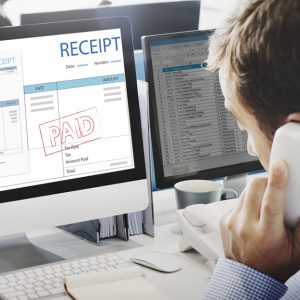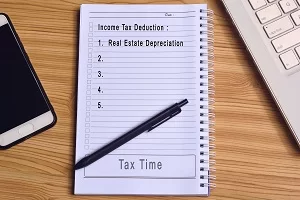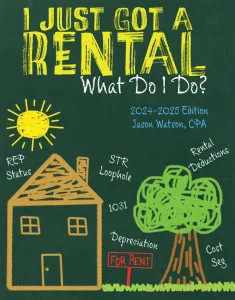
Business Advisory Services
Everything you need to help you launch your new business entity from business entity selection to multiple-entity business structures.
Hey - Our site just had a makeover and we are sorting through the hiccups!
Hey - Our site just had a makeover and we are sorting through the hiccups!

Everything you need to help you launch your new business entity from business entity selection to multiple-entity business structures.

Designed for rental property owners where WCG CPAs & Advisors supports you as your real estate CPA.

Everything you need from tax return preparation for your small business to your rental to your corporation is here.

Posted Saturday, May 11, 2024
Table Of Contents
 Real estate investment is one of WCG CPAs & Advisors core competencies, and as such we get asked a bunch of questions on rental property tax deductions. Most of those questions involve travel expenses, depreciation, repairs versus improvements and short-term rental loophole deductions. Before we get into all that, let’s take a moment and review some basics in taxpaying life.
Real estate investment is one of WCG CPAs & Advisors core competencies, and as such we get asked a bunch of questions on rental property tax deductions. Most of those questions involve travel expenses, depreciation, repairs versus improvements and short-term rental loophole deductions. Before we get into all that, let’s take a moment and review some basics in taxpaying life.
Your primary goal when considering rental properties and real estate investment is to build wealth. Yes, you want the rental activity to have a minimal tax footprint or even offer some tax reduction on other income such as W-2 or self-employment income. However, if you approach buying a rental property solely as a tax-reduction endeavor, you might be chasing the wrong rabbit. Saving taxes is just icing on the wealth-building cake. Okay, perhaps we took it too far there but you get the idea. How about this- At the end of your life, you’ll measure your financial success on the wealth you built not the tax you saved. We agree that a part of wealth building includes tax savings, but be careful not to sacrifice wealth for the thrill of a tax deduction (or deferral).
Here is an example real estate investors can identify with- let’s say you stuff all your available cash into a tax-advantaged retirement account such as a 401k. A few years go by and a great rental comes on the market but your cash is all tied up in a 401k. So, you sacrificed potential building of wealth by not having an intermediate investment strategy for the sake of tax deferrals. Yuck.
There are some over-arching themes and concepts for all rental property tax deductions which are the same as general small business deductions. The rental expense must be-
Let’s break these down. An ordinary expense is one that is common and accepted in your field of business, trade, or profession (in this case, the rental property). A necessary expense is one that is helpful and appropriate, although not necessarily required, for the rental property to operate. The expense must be paid or recognized in the current year. Expenses that were paid but not deducted in previous years cannot be “caught up” by deducting them today without amending your prior tax returns (which are easy to do, and should be done if there is money to be had).
There is some wiggle room by paying expenses in advance. Under 26 CFR 1.263(a)-4 for short, there is a rule called the 12-month rule. This allows you to deduct in full an amount where the benefit received from paying the expense spans two tax years.
Here is the exact wording allowing the immediate deduction of prepaid expenses for “any right or benefit for the taxpayer that does not extend beyond the earlier of-
Finally, the expense must not be lavish or extravagant. IRS Publications 463 states “You cannot deduct expenses for entertainment that are lavish or extravagant. An expense is not considered lavish or extravagant if it is reasonable considering the facts and circumstances.” Yes, they use the word entertainment which is obsolete these days, but you get the idea. In other word, be reasonable!
Let’s talk about travel first. Sure, accelerated depreciation or repairs versus improvements are class favorites, but let’s check off the travel rental tax deduction issue first. As stated previously, all travel expenses must be ordinary and necessary, and they must be business inspired. In other words, the primary purpose of the travel must be for business purposes. We will expand on what that means with examples in a bit. In IRS Publication 527, the IRS states-
You can deduct the ordinary and necessary expenses of traveling away from home if the primary purpose of the trip is to collect rental income or to manage, conserve, or maintain your rental property. You must properly allocate your expenses between rental and nonrental activities. You can’t deduct the cost of traveling away from home if the primary purpose of the trip is to improve the property. The cost of improvements is recovered by taking depreciation.
Whether the travel expense which includes mileage or actual expenses on your automobile, airfare, car rentals, taxis, lodging, among other things, are tax deductible generally depends on two things-
Let’s back up a bit. It is a longstanding legal position within the Tax Court and the IRS that regular and continuous travel between your personal home and your work location is considered commuting and therefore non-deductible. However, Section 162(a)(1) also reads in part-
(a) In general
There shall be allowed as a deduction all the ordinary and necessary expenses paid or incurred during the taxable year in carrying on any trade or business, including-
(1) a reasonable allowance for salaries or other compensation for personal services actually rendered;
(2) traveling expenses (including amounts expended for meals and lodging other than amounts which are lavish or extravagant under the circumstances) while away from home in the pursuit of a trade or business;
Therefore, the travel must be outside your tax home, which is the same rule as any other business travel. How does a home office play into all this?
 Home Office
Home OfficeA home office is simply another work location, where your commute is now from the bedroom to the basement, and your travel between work locations is considered business travel and therefore deductible. The home office deduction in itself is not that thrilling, but when it changes the color of money and converts commuting expenses into deductible business travel, it has some teeth. What are the rules on claiming a home office?
Section 280A has all kinds of lovely language about home offices, but the general gist is this- the space must be exclusive, and used regularly in the pursuit of a trade or business where you perform administrative or management activities. Exclusive means a separate room or identifiable space. Regular is based on facts and circumstances. For defining trade or business, the court in Groetzinger v. Commissioner offered this-
to be engaged in a trade or business, the taxpayer must be involved in the activity with continuity and regularity and that the taxpayer’s primary purpose for engaging in the activity must be for income or profit … A sporadic activity, a hobby, or an amusement does not qualify.
IRS Publication 527 has a nice list of what constitutes administrative or management activities. It includes “billing customers, clients, or patients, keeping books and records, ordering supplies, setting up appointments, and forwarding orders or writing reports.” This is generic of course, but you can certainly change it up slightly to provide a rental property angle. Customers are tenants or guests. Appointments are showings.
Rental properties and their management are a unique trade or business since there is not a principal place of business. Sure, you could rent an office, but the rental activity itself does not usually provide a place of work within itself. This stands in contrast to most trades or businesses such as a surgeon who likely travels to a hospital or surgery center to work. Therefore, most real estate investors and landlords are operating their rental property from their home. Section 280A(c)(1)(C) reads,
For purposes of subparagraph (A), the term “principal place of business” includes a place of business which is used by the taxpayer for the administrative or management activities of any trade or business of the taxpayer if there is no other fixed location of such trade or business where the taxpayer conducts substantial administrative or management activities of such trade or business.
Does this automatically mean there is a home office? Not necessarily. Your home office in connection with your rental property still needs to follow the exclusive, regular, trade / business and administration definitions above.
This is all a bit nauseating, so let’s bring it home. If your rental property is outside your tax home’s metropolitan area (loosely defined in various court cases and memos at 50 miles) or if you can support a home office in connection with your rental activity, then your travel expenses should be deductible.
Is being a Real Estate Professional strongly support a home office claim and therefore travel deduction? Likely.
Does having a single short-term rental support a home office claim? Less likely than above, but not impossible.
Can you claim a home office with a single long-term rental? Unlikely.
What about three rentals? Perhaps… and now we are getting more into a facts and circumstances argument which is good and bad. Good, because there isn’t a bright line. Bad, because someone might disagree with you, and you will need to craft an argument.
Sidebar on the “50-mile” rule or what defines the metropolitan area.
1. IRC Section 162(h) defines the local area for state legislatures as 50 miles.
2. Federal government defines metro area for IRS employees as 50 miles (IRM 6.550.1.1.7).
3. Part 301-11 Per Diem Expenses, U.S. Dept of Interior says no per diem if your TDY is within 50 miles of duty station or residence.
Outside tax home or home office. Got it. 50-miles. Neat. Now what? What activities are travel activities and therefore deductible? Here is a quick list in descending order of elegance-
Research and basic rental property shopping or inspection does not count unless you purchase the rental property, but even then, these expenses are capitalized into the property itself as acquisition costs. As such, trips to Tahoe in search of a ski condo that you might turn into a short-term rental are a no-go (see Wallach v. Commissioner, Tax Court Summary Opinion 2012-94).
At times rental property owners want to list an automobile within the rental activity to take advantage of additional depreciation (versus just using the standard mileage deduction). Unless you have several rental properties it might be difficult to justify a dedicated, or even a 51%-dedicated, automobile just for use in your rental activity. It is not impossible, but you need to ensure it is ordinary and necessary (those words again!), and that your facts present in a reasonable way.
There are rental property tax deductions that many real estate investors seldom consider-
These are amortized over the length of the loan.
These include travel for inspections, title insurance, transfer taxes and related expenses. Acquisition costs are depreciated at the same length as the building asset which is usually 27.5 years or 39.0 years.
It is common to purchase a rental property but spend 30-60 days getting it ready for “service.” You might have utilities, property taxes and repairs before your “service date.” These expenses are similar to acquisition costs, and capitalized into the building asset. The sooner you can have the rental property available for rent even if the first lease or rental date is multiple weeks away, the more rental property tax deductions you can immediately deduct. To reiterate, the service date of a rental is rarely the same date as the first booking or the move-in date of a lease.
We expand on this in a later section, but improvements that make the rental property better, adapts it to new use or restores to a new condition (BAR).
We call all these delayed rental property tax deductions because they are either a) deductible over time through depreciation or b) added to the property’s basis and therefore “deducted” as a reduction of capital gain should you sell. Delayed satisfaction.
Let’s turn to depreciation since there might be ways to accelerate your depreciation to increase the rental property tax deductions impact. Lots to discuss here.
The question comes up often where a real estate investor does not want to mess with depreciation for whatever reason, and decides against deducting it on their tax returns. This will bite you because according to IRS Publication 544 Sales and Other Dispositions of Assets,
The greater of depreciation allowed or allowable (to any person who held the property if the depreciation was used in figuring its adjusted basis in your hands) is generally the amount to use in figuring the part of the gain to be reported as ordinary income. If you can show that the deduction allowed for any tax year was less than the amount allowable, the lesser figure will be the depreciation adjustment for figuring additional depreciation.
What does this mean? Generally, if you don’t deduct rental depreciation, when you sell the property you will be required to recapture depreciation as if you deducted it. Yuck. However, if you didn’t deduct rental depreciation, we easily fix it with a Form 3115 Application for Change in Accounting Method and Section 481(a) adjustment.
In related news, Canada allows rental property owners to opt out of depreciation entirely. Who knew? (kinda makes sense when most real estate appreciates and doesn’t depreciate)
Cost segregation or costseg as the cool kids say allows you to accelerate depreciation (and therefore lower taxes and increase cash) on real estate. With a cost segregation report or a cost segregation study (CSS), all the bricks are figuratively torn down and put into different piles. Some piles are eligible for instant depreciation through bonus or possibly Section 179, and the remaining pile might revert to the 27.5- or 39.0-year typical rental or business use depreciation schedule.
Technically and with full-on geek-speak, cost segregation separates property elements that are “dedicated, decorative or removable” from those that are “necessary and ordinary for operation and maintenance of the building.” These piles are called asset classes, and they are maintained separately within your property’s depreciation schedule. Without cost segregation, your fixed asset listing (aka depreciation schedule) for real estate or a rental property would contain-
We sometimes tack acquisition costs onto the building directly, however we usually list them as a separate asset for breadcrumbs or legacy purposes. When a cost segregation report is implemented into your tax return, the Building asset above is chopped up typically into four new assets-
From there, and with the help of bonus depreciation and in some cases Section 179 depreciation, you compress the multiple years into one. Yay! Whether this accelerated rental property depreciation yields a tax deduction / tax benefit and therefore increased cash flow (an improved IRR) is contingent on three general things-
Or some combination of the above. Ok, cool, right? How do we get this going? CostSegEZ is WCG’s preferred provider of cost segregation reports. Keep in mind too that should you benefit from a cost segregation study and the related big tax deduction, then perhaps pairing this with a Roth conversion on your traditional IRA makes sense as well. A little sidebar to our discussion.
 Accelerated Depreciation with Section 179
Accelerated Depreciation with Section 179This one gets tricky fast. Generally, Section 179 allows businesses to deduct the full purchase price of qualifying equipment bought or financed during the tax year. Sounds simple enough, right?
However, rental properties are not automatically considered a trade or business (see definition way above). A business must have a profit motive; whether you actually earn a profit is irrelevant… it is your motivation and subsequent actions that dictate this determination. Also, your participation in the business must be regular and continuous (do not confuse this with material participation which has a series of bright line tests).
Owning a rental property is no different- profit motive, and regular and continuous work. By using Alvary v. United States, 302 F.2d 790 (2d Cir. 1962) and Gilford v. Commissioner, 201 F.2d 735 (2d Cir. 1953), the IRS and others have come up with a mini facts and circumstances checklist-
Both the courts and the IRS have consistently found in favor of rental property owners, and allowed broad support for the profit motive including the regular and continuous requirements. However, in Grier v. United States, 120 F.Supp. 395 (D.Conn. 1954) the taxpayer lost. How?
Edgar Grier inherited a house from his mother that she had rented out for many years to the same tenant. This same tenant continued to occupy the property until Grier sold it 14 years later. Over the years, little management work was required, but Grier did take care of such details as replacing the furnace. The IRS and court found that the house was an investment, not a business for Grier. The court noted that this was the only rental property Grier had ever owned and concluded that his landlord activities were too minimal to rise to the level of a business.
Profit motive. Got it. Continuous and regular. Wonderful. Now what? In the past, Section 179 could not be used to deduct personal property used in residential rental property. However, the Tax Cuts and Jobs Act (TCJA) eliminated this restriction starting in 2018. This means that rental property owners can now use Section 179 to deduct the cost of personal property items they purchase for use inside rental units—for example, kitchen appliances, carpets, drapes, or blinds.
There is a subtle difference between the above examples, and non-residential rental property. Under TCJA, Section 179 expensing has been expanded to include non-residential roofs, heating, ventilation, air conditioning, and fire / alarm protection systems. Therefore, a new HVAC system for single-family residence cannot be expensed with Section 179.
Section 179 lost a lot of its sexiness once bonus depreciation hit 100% and even 80%. As of May 2024, bonus depreciation is 60% and as such Section 179 is back as a great rental property tax deduction and tax savings tool when appropriately leveraged.
Keep in mind that under IRS Notice 2015-82, any item $2,500 or less in cost is immediately expensed and does not have to qualify for bonus or Section 179 depreciation. For example, you own a 4-unit mini apartment, and you buy four $1,200 dishwashers for a total of $4,800. Since each line item is $2,500 or less, you can immediately expense the purchase as Repairs and Maintenance.
Think about this in your short-term rental scenario. With the exception of a big sectional couch or some other large piece of furniture, all of your start-up costs will be considered de minimis. Bed frames, mattresses, linens, dressers, lamps, chairs, BBQ grill, small appliances, dishes, cleaning supplies and the zillions things not mentioned here will usually be $2,500 or less as a single item even if you spend $40,000 in aggregate. $2,500 in 2015 is certainly different than today.
You will need to make an election on your tax returns, but this is a tiny housekeeping requirement.
As mentioned earlier, and loosely stated again, repairs are expensed immediately regardless of the amount spent whereas improvements are added to your fixed asset listing (depreciation schedule) and depreciated over time.
The acronym to use is BAR or BRA depending on your preference, but no one uses ARB or RAB. The B is for Betterment, the A is for Adapt and R is for Restore. A good betterment example is converting a garage into a casita or finishing the basement. Other betterments are fixing a material defect or increasing “increase productivity, efficiency, strength, quality, or output of the unit of property where applicable.”
According to the IRS, adapts refers to “an amount is paid to adapt a unit of property to a new or different use if the adaptation is not consistent with your ordinary use of the unit of property at the time you originally placed it in service.” Converting a garage could be an adaptation but it could also be a betterment, but either way it is an improvement. A great adaptation example is gentrification where a downtown manufacturing building is converted into lofts and apartments.
Restore is usually replacing a major component or substantial structural part. A great example is a new roof, or new doors and windows.
Paint is a wonderful example of the “it depends” conundrum. Here is a nice summary from the IRS-
Repainting the exterior of your residential rental property:
1. By itself, the cost of painting the exterior of a building is generally a currently deductible repair expense because merely painting isn’t an improvement under the capitalization rules.
2. However, if the painting directly benefits or is incurred as part of a larger project that’s a capital improvement to the building structure, then the cost of the painting is considered part of the capital improvement and is subject to capitalization.
3. In this case, the painting is incurred as part of the overall restoration of the building structure. Therefore, the repainting costs are part of the capital improvements and should be capitalized and depreciated as the same class of property that was restored, as discussed above.
To the best that you can, track all expenses in excruciating detail so as to carefully split hairs between repairs and improvements. Here are some common questions-
Having said all this, don’t forget about cost segregation and its potential impact on improvements. Yes, if you have an improvement you are required to capitalize it, and list it as a depreciable fixed asset alongside your other rental assets. However, with a costseg report you might be able to accelerate a large chunk of improvement’s depreciation.
Just because you cannot deduct your rental losses (let’s say your income is too high, or your rental property tax deductions create a non-deductible loss), don’t limit the expenses you list on your tax returns. Form 8582 Passive Activity Loss Limitations is used to track all disallowed rental property losses. When you have taxable rental income (profits) or if you sell a rental property, prior disallowed losses are “released” to either reduce taxable rental property income from operations or capital gains upon sale.
You should only deduct proper rental expenses, but don’t short-change yourself simply because you cannot immediately deduct them in the current year. Pile on!
You borrow $250,00 as a home-equity line of credit collateralized by your primary residence to purchase a rental property. Can you deduct the mortgage interest? According to Section 163 and interest tracing rules, the answer is Yes. You can deduct the interest associated with $100,000 on Schedule A (itemized deductions) with the remainder on Schedule E (rental property), or all the interest on Schedule E. There might be reasons why you would split it up, and reasons you deduct 100% of the interest on Schedule E. It would depend on whether you itemize your deductions on Schedule A, your overall debt associated with the primary residence and your ability to deduct losses generated by the rental activity.
For those real estate property owners who use their property personally, and need to allocate between business and personal use, we need to quickly address the Bolton Method or sometimes called the Court Method (and it stands in contrast to the IRS Method). Simply stated, the Bolton Method allows more mortgage interest and property taxes to be allocated to Schedule A versus the rental property’s Schedule E. Why do you care? With vacation home rules, if you personally use the property more than 15 days or more than 10% of the total days you rent it to others at a fair rental price, you cannot create a deductible loss in the rental activity. If a big chunk of those non-deductible losses are mortgage interest and property taxes, perhaps deducting them elsewhere is better.
 However, since the Tax Cuts and Jobs Act (TCJA) in 2017, mortgage interest is limited based on overall mortgage debt and state and local taxes (SALT) are limited to $10,000. If you have a second home that you rent out, a portion of the mortgage interest and property taxes will be applied to Schedule A along with your primary residence, and in most cases are not fully deductible when combined.
However, since the Tax Cuts and Jobs Act (TCJA) in 2017, mortgage interest is limited based on overall mortgage debt and state and local taxes (SALT) are limited to $10,000. If you have a second home that you rent out, a portion of the mortgage interest and property taxes will be applied to Schedule A along with your primary residence, and in most cases are not fully deductible when combined.
Before TCJA it was quite simple; if you itemized, then Bolton / Court Method was better. If you used the standard deduction, the IRS Method would be better. With TCJA, you must run both scenarios.
Bolton Method is basically rental days divided by days in the year, whereas the IRS Method is rental days divided by number of days used for any purpose. The Bolton Method usually results in a lower percentage, and therefore a lower allocation of mortgage interest and property taxes to the rental activity.
While we are talking about vacation rules and allocation and all that good stuff, certain expenses can still be deemed 100% deductible even in a personal use of rental situation. Cleaning and Management Fees are the quick ones that come to mind. Supplies are hit or miss- towels and linens, Yes. New slow cooker for the kitchen? Hmm…
Section 199A offers a 20% deduction for small business owners, but are rental properties considered a trade or business? The answer is generally Yes on Section 199A rental income but it took us some time to get here. In August 2018, the IRS released Proposed Regulations 1.199A to offer some additional insight to Section 199A but nothing was clarified or confirmed about rental income. Later, the IRS released Notice 2019-7 titled Section 199A Trade or Business Safe Harbor: Rental Real Estate.
The gist of all this is simple; if you run your rental activity like a business where you have a profit motive, and your involvement in the activity is regular and continuous, then you can deduct 20% from the taxable rental income (profit) on Form 8995. As discussed above in Grier v. United States, not all rental activities will “rise to the level of Section 162” as they say. NNN leases also don’t count since most expenses are passed onto the tenants, and as such you fail the “profit motive” requirement. We’ve seen this list above with some added verbiage, but here is the straight dope from the Section 199A Final Regulations–

Learn section 199A trade or business definition and its connection to section 162 regulations.
WCG CPAs & Advisors are rental property experts, and as such we have several real estate investors and property owners as clients. We only touched on a few expenses here since they are the ones that cause the most confusion and therefore concern. There are several other rental property tax deductions such as-
Use the button below to download our simplified rental operations worksheet (what we call the SRO).
 I just got a rental, what do I do? Purchasing a rental property is certainly challenging, but operating one to build wealth and find tax efficiency is equally challenging. This is our second book. Our first book, Taxpayer’s Comprehensive Guide to LLCs and S Corps, was first published in 2014 and was well-received by small business owners and tax professionals, so we thought a book on rental properties and real estate investments would be equally helpful. So, here we are with our first iteration, or the 2024-2025 edition. We plan to update annually.
I just got a rental, what do I do? Purchasing a rental property is certainly challenging, but operating one to build wealth and find tax efficiency is equally challenging. This is our second book. Our first book, Taxpayer’s Comprehensive Guide to LLCs and S Corps, was first published in 2014 and was well-received by small business owners and tax professionals, so we thought a book on rental properties and real estate investments would be equally helpful. So, here we are with our first iteration, or the 2024-2025 edition. We plan to update annually.
Our rental property book starts with entity structures and moves into asset management such as acquisition, cost segregation, rental safe harbors, repairs versus improvements, accelerated depreciation, partial asset disposition, and 1031 like-kind exchange. From there we discuss various rental considerations like passive activity losses, short-term rental loophole, real estate professional status, and material participation including what time counts, and what time doesn’t count.
Finally, the good stuff! Rental property tax deductions such as travel, meals, automobiles, interest tracing, home office and common expenses. Fun!
It is available in paperback for $19.95 from Amazon and as an eBook for Kindle for 15.95. Our book is also available for purchase as a PDF from ClickBank for $12.95.
WCG has a team of real estate CPAs ready to assist you with your rental property and real estate investments. Very few tax professionals and CPA firms specialize in real estate to provide you solid consultation, tax planning including tax reduction strategies, and tax return preparation. We are experts in-
This book is written with the general rental property in mind. Too many resources tell you the general rule but don’t bother to back it up with Internal Revenue Code, Treasury Regulations and Tax Court cases. Our book lays it all out, explains the madness, adds some humor and various conundrums.
Enjoy! And please send us all comments, hang-ups and static. This book is as much yours as it is ours, except the tiny royalty part- that’s ours. Stop by and we’ll buy you a beer with the pennies.
If you buy our 320-page book and think that we didn’t help you understand rental property tax laws, let us know. We never want you to feel like you wasted your money. If you are ready to add some insightful reading into your day, click on one of the preferred formats. Amazon is processed by Amazon, and the PDF is safely processed by ClickBank who will email you the PDF as an attachment.
 |  |  |
| $19.95 | $15.95 | $12.95 |
WCG CPAs & Advisors is a full service rental property consultation and tax preparation firm based in Colorado Springs, and we look forward to working with you!
Table Of Contents

Tax planning season is here! Let's schedule a time to review tax reduction strategies and generate a mock tax return.

Tired of maintaining your own books? Seems like a chore to offload?
Do you have questions about your travel deductions? Do you need to take your set of facts and interface them with the tax code with a real estate minded tax professional? Do you believe you are a real estate professional as defined by the IRS? Let’s chat!
The tax advisors, business consultants and rental property experts at WCG CPAs & Advisors are not salespeople; we are not putting lipstick on a pig expecting you to love it. Our job remains being professionally detached, giving you information and letting you decide within our ethical guidelines and your risk profiles.
We see far too many crazy schemes and half-baked ideas from attorneys and wealth managers. In some cases, they are good ideas. In most cases, all the entities, layering and mixed ownership is only the illusion of precision. As Chris Rock says, just because you can drive your car with your feet doesn’t make it a good idea. In other words, let’s not automatically convert “you can” into “you must.”
Let’s chat so you can be smart about it.
We typically schedule a 20-minute complimentary quick chat with one of our Partners or our amazing Senior Tax Professionals to determine if we are a good fit for each other, and how an engagement with our team looks. Tax returns only? Business advisory? Tax strategy and planning? Rental property support?

Everything you need to help you launch your new business entity from business entity selection to multiple-entity business structures.

Designed for rental property owners where WCG CPAs & Advisors supports you as your real estate CPA.

Everything you need from tax return preparation for your small business to your rental to your corporation is here.


